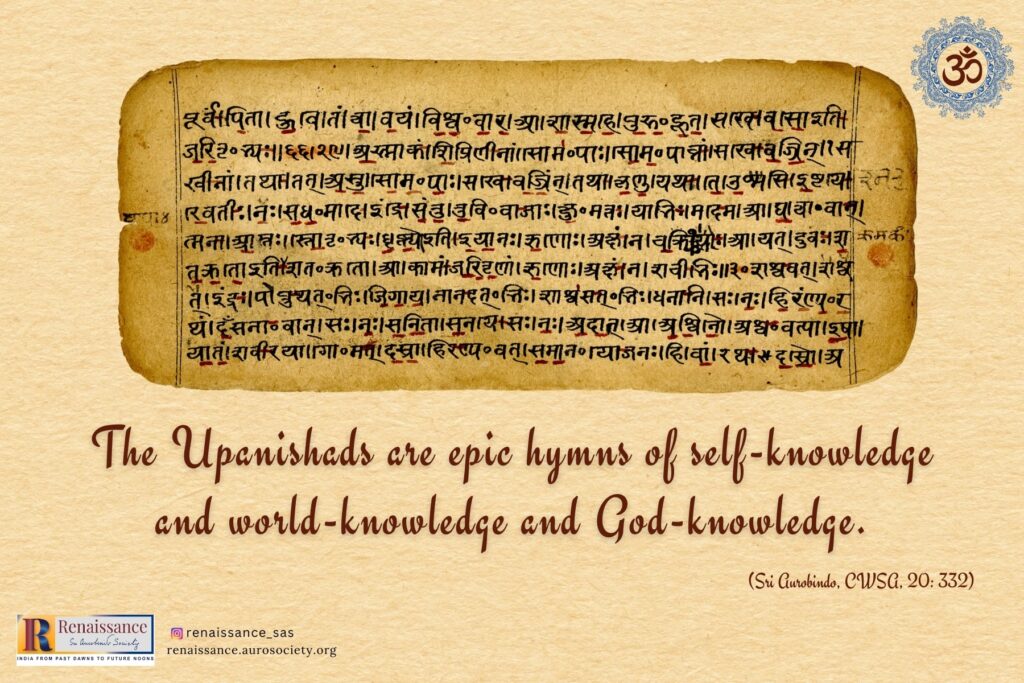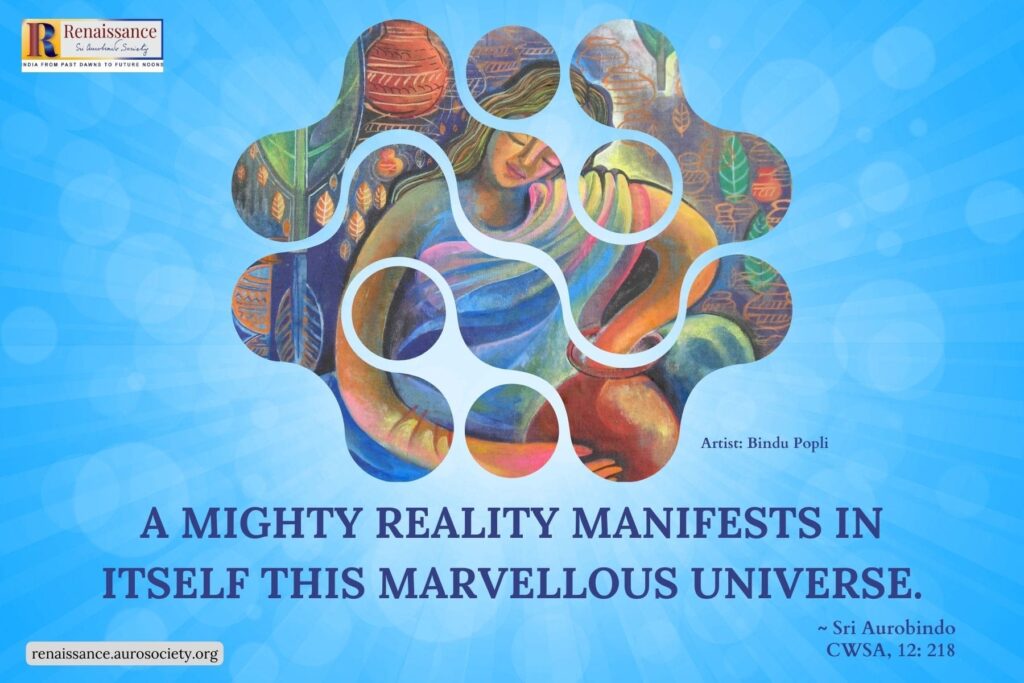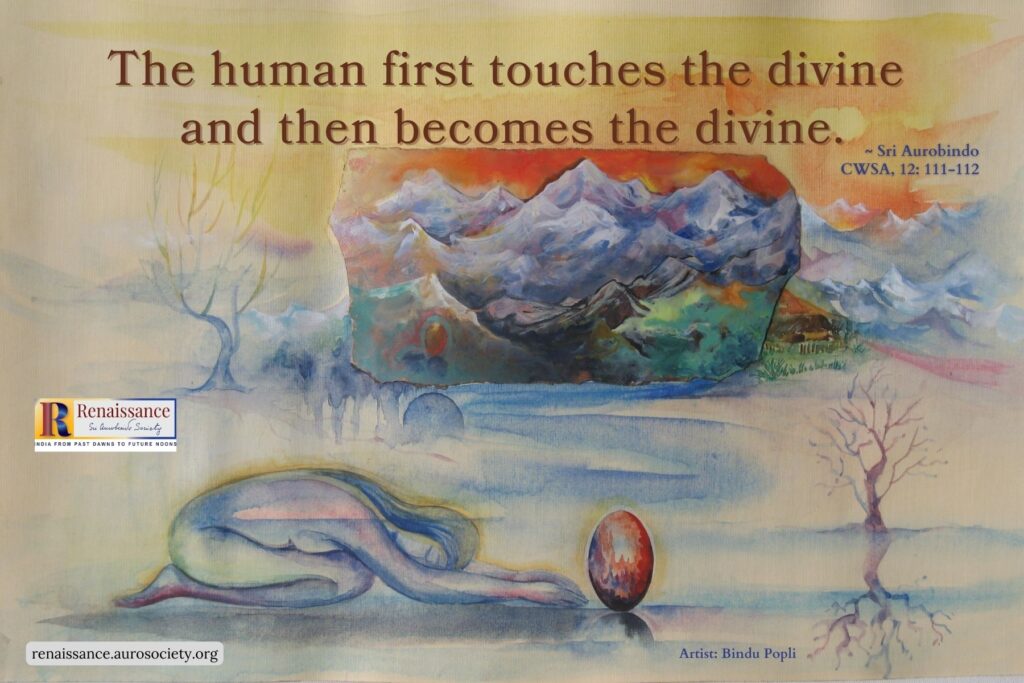EDITOR’S NOTE:
Agni is the leader of the sacrifice and protects it in the great journey against the powers of darkness. The knowledge and purpose of this divine Puissance can be entirely trusted; he is the friend and lover of the soul and will not betray it to evil gods.
~ Sri Aurobindo, CWSA, Vol. 15, pp. 388-389
What happens when Agni, the divine seer-will, the flame of psychic aspiration, goes into hiding? Where does it hide? How to bring it back from its hiding place? This was the subject of a Vedic parable (Rig Veda X. 51) which was beautifully explained by Nolini Kanta Gupta in a piece titled ‘A Vedic Story’.
It is excerpted from his work titled ‘Seer Poets’ (published in 1970 by Sri Aurobindo Ashram Press), pp. 1-5. A few minor edits are done for this digital presentation.

The gods are in a great fix. Where is Agni? How is it that the comrade has disappeared all on a sudden? The Sacrifice—the great work has to be undertaken. And he is to be the leader, for he alone can take up the burden. There is no time to be lost, everything is ready for the ceremony to start and just at the moment the one needed most is nowhere. So the gods organise a search party to find out the whereabouts of the runaway god.
The search party consists of Varuna, Mitra and Yama. We shall presently understand the sense of the selection. They look about here and there—in ten directions, it is mentioned—and at last spot the defaulting god hiding within a huge thick strong cloak or caul. They hail him and ask him to come out and take up his charge.
Agni refuses: he says he is not competent to undertake the burden; indeed that is why he ran away and they must not force him. The gods explain, entreat, encourage Agni. They say and assure him that no harm will come to him, rather he will flourish and prosper and become immortal. He is mighty and he will become almighty as he takes up his work and proceeds with it. Agni accepts in the end and marches out with the gods.
What does this parable mean?
First of all, we must know what is a Vedic sacrifice.
Sacrifice symbolises the cosmic labour, the march of the universe towards its goal, the conquest of Light over Darkness, the ascent of manhood to godhead, the flaming rise and progress of consciousness to its supreme expression and embodiment. It is the release out of Inconscience and Unconsciousness to consciousness and finally into the super-consciousness.
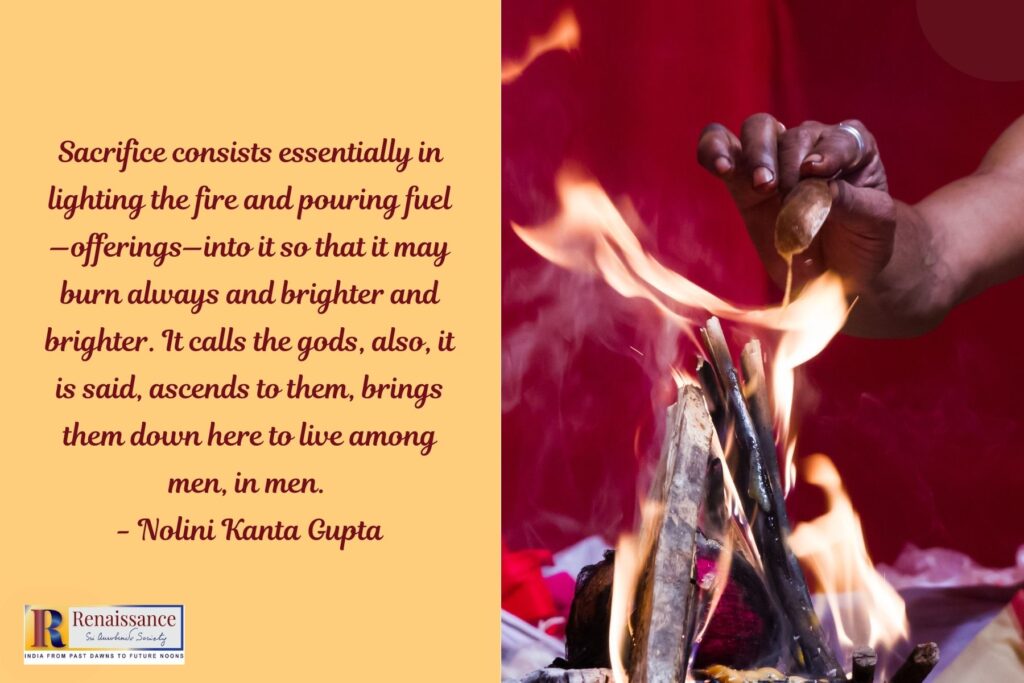
Don’t miss:
The Triple Agni in the Upanishads and the Triple Aspiration
Sacrifice consists essentially in lighting the fire and pouring fuel—offerings—into it so that it may burn always and brighter and brighter. It calls the gods, also, it is said, ascends to them, brings them down here to live among men, in men. It lifts men from the ordinary life and consciousness, takes them to the abode of the gods. In other words its function is to bring down and infuse into the human vessel the godly consciousness and delight and power. Its purpose is to divinise human life.
Through the sacrifice man offers his present possessions, his body and life and mind to the Deity and deities and by this surrender and submission, constant and unfailing (namas), he awakens the Divine in him—the Agni that is to lead him to the divine consummation.
Fire Moves the Creation Upward
Fire then is the energy of consciousness secreted in the heart of things. It is that which moves the creation upward, produces the unfolding evolution that is history, both individual and collective.
It is kindled, it increases in volume and strength and purity and effectiveness, as and when a lower element is offered and submitted to a higher reality and this higher reality impinges upon the lower one (which is what the rubbing of the araṇi or the pressing of the soma symbolises); the limitation is broken, the small enters into and becomes the vast, the crooked is straightened and lengthened out, what was hidden becomes manifest.
This is described as the progression of the sacrifice (adhvara —advance on the path). That is also the victorious battle waged against the dark forces of Ignorance. The goal, the purpose is the descent and manifestation of the gods here upon earth in human vehicles.
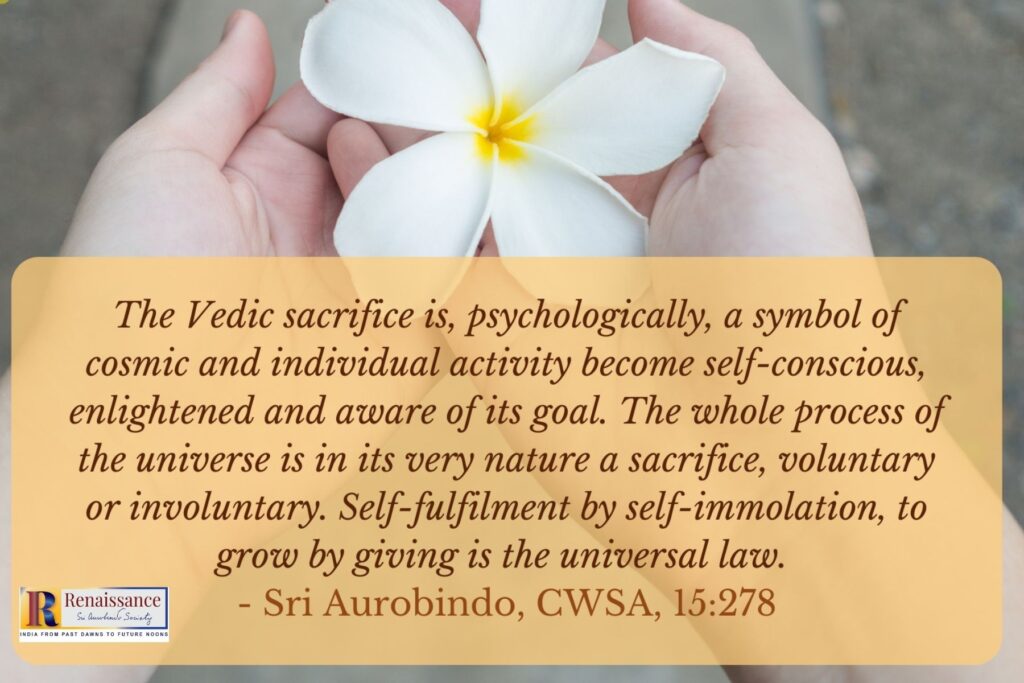
See:
Agni, the Divine Will-Force, the Priest of the Sacrifice
But this Fire is not normally available. It is lost, imbedded in the thick petrified folds of unconsciousness and inconscience. Man’s soul is not an apparent reality. It has to be found out, called forth, brought to the front. Even so, in the normal consciousness, the soul, the divine fire is a flickering, twinkling, hesitating spark. It is not sure of itself, not certain of its destiny.
Yet when the time is ripe and the call comes, the gods, the luminous forces from above descend with all their insistence and meet the hidden godhead. Agni is reminded of his work and destiny which nothing can frustrate or cancel. He has to consent and undertake his sacrificial labour.
Agni feared and tried to escape from the burden of his responsibility. He wrapped himself in a thick and vast cloak and hid in the depths of far waters. That is the parable way of describing the difficulty, the apparent impossibility of the undertaking Agni has to shoulder.
Curiously, however, he has taken shelter just in the spot which seemed safest to him, from where begins his work, whose nature and substance he has to transform, that is to say, the nether regions of inconscience which is to be raised and transfigured into the solar region of the supra-consciousness.
The Search Party
One interesting point in the story is the choice of the gods who formed the search party. They were Mitra, Varuna and Yama.
Varuna is the god of the vast consciousness (Brihat), the wide universal, the Infinite. His eye naturally penetrates everywhere and nothing can escape his notice. Mitra is harmony and rhythm of the infinity. Every individual element he embraces and he holds them all together in loving union—his is the friendly tie of comradeship with all.
Finally, Yama is the master of the lower regions, the underworld of physical and material consciousness, where precisely Agni has taken refuge. Agni is within the jurisdiction of this trinity and it devolves upon them to tackle the truant god.
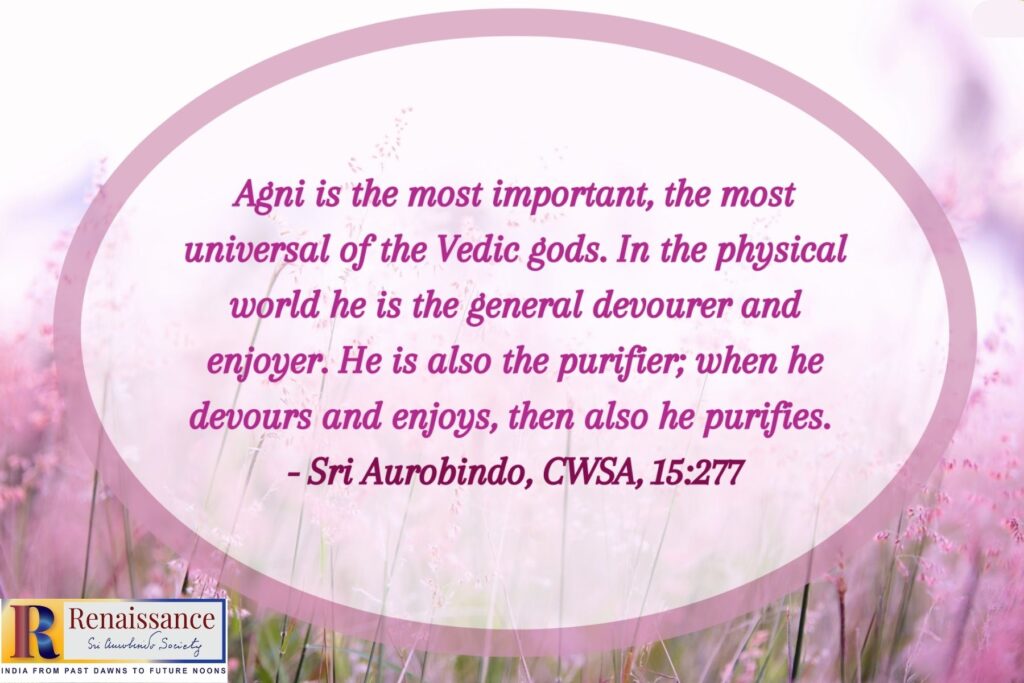
The Inferior Gods
There is another point which requires clarification. As a reason for his nervousness and flight he alleges that greater people who preceded him had attempted the work, but evidently failed in the attempt; so how can he, a younger novice, dare to go the same way?
Putting the imagery back to its psychological bearing, one may explain that the predecessors refer to the deities of the physical, vital and mental consciousness who ruled the earth before the emergence of the psychic or soul consciousness. It is precisely because of the failure or insufficiency of these anterior—in the evolutionary movement—and inferior gods that Agni’s service is being requisitioned.
Mythologically also a parallelism is found in the Greek legends where it is said that the Olympian gods—Zeus and his company—were a younger generation that replaced, after of course a bloody warfare, their ancestors, the more ancient race of Kronos, the Titans. Titans were the Asuras and Rakshasas who reigned upon earth before the advent of the mental—sattwic—human being, Manu, as referred here.

Read:
Aspiration is to be Developed, Tended, Kept Awake and Living
~ Design: Raamkumar

